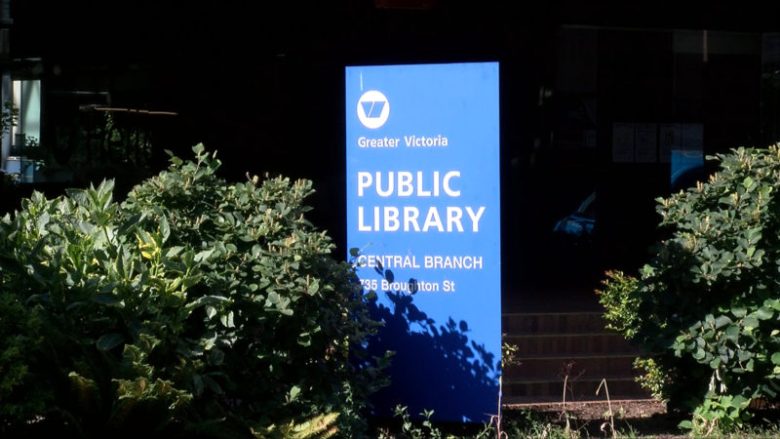Education
Libraries Evolve Beyond Books: A New Era of Community Learning

A recent incident involving a book returned to the Vancouver Public Library after being 50 years overdue highlights the evolving role of libraries in modern society. The book’s return, which occurred long after the original checkout, serves as a reminder of the lasting connection many individuals have with libraries and their changing functions.
Historically, libraries served as the primary source of information before the digital age. Librarians and library technicians, who undergo extensive training, were invaluable resources for the community. They guided patrons through card catalogs and answered queries that required in-depth knowledge. As the library landscape changed with the introduction of computers and the internet, many feared that these institutions would become obsolete. However, libraries have not only adapted but have expanded their offerings significantly.
In the wake of retirement, Irene Jackson, a former librarian, rediscovered the value of libraries. She noted how her connection to the Greater Victoria Public Library began in the 1980s and how her reading habits evolved with technology. With the rise of e-books and applications like Libby, which provides access to digital reading materials, the library remains a relevant and vital resource for many.
Jackson’s experience renewing her library card illustrates the streamlined processes now in place. Instead of the traditional method of interacting with a librarian at a desk, she encountered modern technology that simplified the renewal process. This reflects the broader trend of libraries embracing digital innovations to enhance user experience.
Today’s libraries offer a plethora of services beyond just books. They host programs for individuals of all ages, including reading groups, workshops, and community support sessions. For instance, patrons can learn English, attend informative sessions on replacing lost identification, or participate in creative events like the Summer Story Walk. Virtual initiatives such as BC Libraries Present enable users to connect with award-winning authors from the comfort of their homes.
The range of materials available for borrowing has also diversified. Libraries now offer video games, movies, music, audiobooks, and more, catering to the interests of a broader audience. At branches like the Esquimalt Branch, patrons can convert various media formats to digital, further illustrating the libraries’ commitment to evolving with the times.
Reflecting on the impact of computers, Jackson recalls her time as a computer operator at the Vancouver Public Library, one of the first in Canada to automate its systems. The departure from traditional methods to digital solutions is reminiscent of the original Gutenberg printing press, which revolutionized access to information. The computer, likened to a “second Gutenberg,” has similarly transformed how communities access knowledge.
Despite these significant changes, libraries continue to thrive, proving that they are not merely repositories for books. They remain essential community hubs that foster learning, creativity, and connection. The story of the long-overdue book emphasizes the importance of these institutions, which have the capacity to forgive fines and welcome back patrons who may have drifted away.
In conclusion, visiting a local library today reveals a wealth of resources and opportunities that extend far beyond traditional books. As libraries continue to evolve, they play an indispensable role in enriching community life. Whether through physical materials or digital innovations, libraries are undeniably more than just places for books.
-

 World4 months ago
World4 months agoScientists Unearth Ancient Antarctic Ice to Unlock Climate Secrets
-

 Entertainment4 months ago
Entertainment4 months agoTrump and McCormick to Announce $70 Billion Energy Investments
-

 Lifestyle4 months ago
Lifestyle4 months agoTransLink Launches Food Truck Program to Boost Revenue in Vancouver
-

 Science4 months ago
Science4 months agoFour Astronauts Return to Earth After International Space Station Mission
-

 Technology2 months ago
Technology2 months agoApple Notes Enhances Functionality with Markdown Support in macOS 26
-

 Top Stories3 weeks ago
Top Stories3 weeks agoUrgent Update: Fatal Crash on Highway 99 Claims Life of Pitt Meadows Man
-

 Sports4 months ago
Sports4 months agoSearch Underway for Missing Hunter Amid Hokkaido Bear Emergency
-

 Politics3 months ago
Politics3 months agoUkrainian Tennis Star Elina Svitolina Faces Death Threats Online
-

 Politics4 months ago
Politics4 months agoCarney Engages First Nations Leaders at Development Law Summit
-

 Technology4 months ago
Technology4 months agoFrosthaven Launches Early Access on July 31, 2025
-

 Top Stories2 weeks ago
Top Stories2 weeks agoFamily Remembers Beverley Rowbotham 25 Years After Murder
-

 Top Stories5 days ago
Top Stories5 days agoBlake Snell’s Frustration Ignites Toronto Blue Jays Fan Fury





















